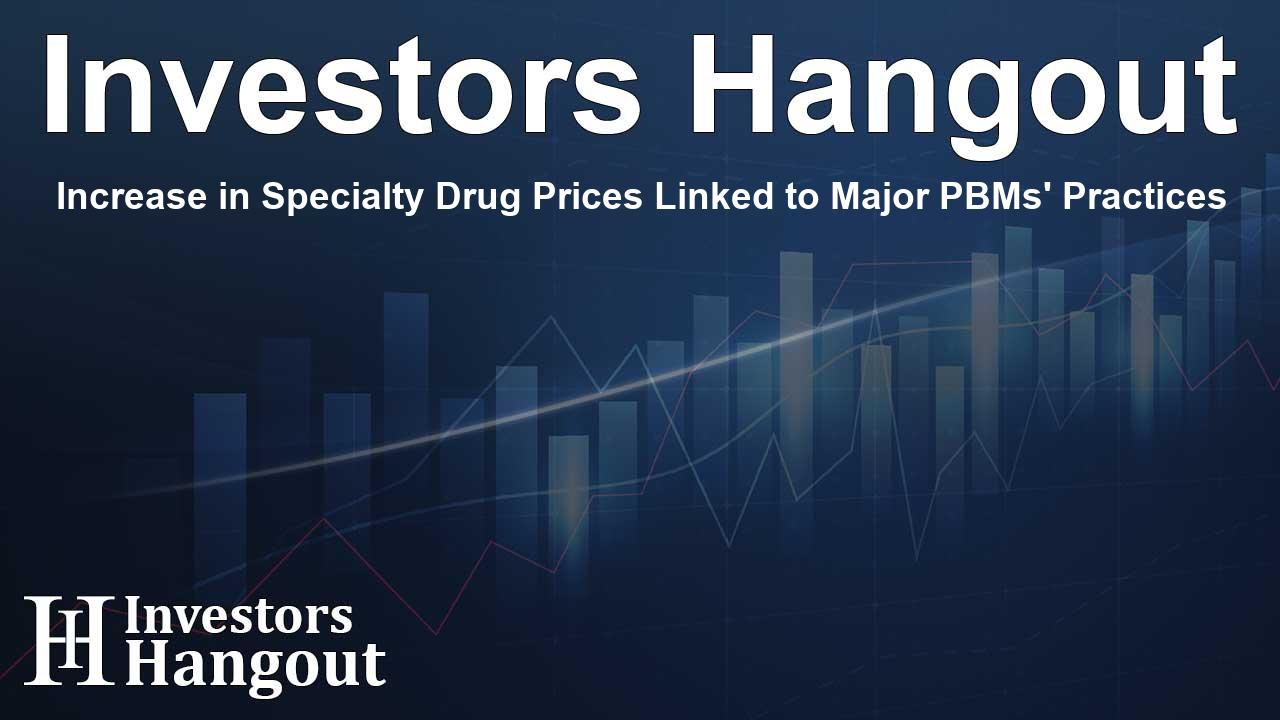Increase in Specialty Drug Prices Linked to Major PBMs' Practices

Understanding the Impact of Pharmacy Benefit Managers
The increasing financial burdens on healthcare take center stage as recent reports shed light on the alarming practices of Pharmacy Benefit Managers (PBMs) such as UnitedHealth Group Inc. (NYSE: UNH), CVS Health Corp. (NYSE: CVS), and Cigna Corp. (NYSE: CI). The Federal Trade Commission (FTC) has released an interim review that outlines how these companies have profited immensely through inflated pricing of essential specialty drugs.
The Findings of the FTC Report
This detailed report highlights the staggering markups on specialty drugs used to treat severe medical conditions such as cancer and HIV. The review reveals revenue generation surpassing billions of dollars, attributed to markups that can soar to hundreds and even thousands of percentage points. The financial success of these companies has raised eyebrows among regulators and healthcare advocates, prompting calls for thorough investigations.
Revenue Exploitation from Specialty Drugs
From 2017 to 2022, the trio of major PBMs earned over $7.3 billion in revenue from dispensing practices that far outpaced the acquisition costs of the drugs. The report notes a concerning trend: PBM-affiliated pharmacies dispensing approximately 68% of specialty drug revenue. This marks a significant increase from 54% in earlier years, illustrating the growing hold these entities have on this lucrative market.
The Economic Toll on Patients and Providers
As the FTC reports outline, patients, employers, and health plan sponsors have faced escalating costs alongside these rising revenue figures. The pressures on healthcare costs have put a strain on many, with the spending on specialty drugs seeing an annual growth rate of 21% for commercial claims over recent years. In a striking revelation, plan sponsors alone shelled out $4.8 billion in 2021, with patients contributing an additional $297 million towards their medications, reflecting the far-reaching impact of these pricing strategies.
Concerns Over Market Practices
FTC Chair Lina Khan has noted a critical need for further investigations to understand how these practices inflate drug prices and their subsequent effects on independent pharmacies. The report suggests a potential steering of profitable prescriptions towards PBM-affiliated pharmacies, resulting in additional income of up to $1.4 billion from spread pricing. This strategy allows PBMs to charge plan sponsors more than what they pay pharmacies, significantly increasing profits.
Transparency and Fairness in Drug Pricing
With healthcare costs climbing, the debate over the roles and responsibilities of PBMs has never been more pertinent. The study assessed numerous specialty drugs, including crucial medications like Ampyra and Gleevec, indicating that the top ten drugs alone accounted for an astounding $6.2 billion in revenue surpassing acquisition costs.
Looking Forward: The Need for Change
The findings underscore an urgent call to action for regulators, policymakers, and the healthcare community at large. The knowledge that PBMs are capitalizing on patient affliction casts a shadow over the ethical responsibilities these organizations hold in providing accessible healthcare. Continued scrutiny and reform may be necessary to ensure that patient care remains the priority, rather than profit margins.
Frequently Asked Questions
What are Pharmacy Benefit Managers (PBMs)?
PBMs are third-party administrators of prescription drug programs primarily responsible for processing and paying prescription drug claims.
Why is the FTC investigating PBMs?
The FTC aims to understand the impact of PBM practices on drug pricing and patient access, particularly in the specialty drug market.
What are specialty drugs?
Specialty drugs are high-cost medications that are often used to treat complex or chronic health conditions, requiring special handling and distribution.
How have drug prices changed in recent years?
Drug prices have steadily increased, with specialty drug costs experiencing annual growth rates of up to 21% for commercial claims.
What can patients do to manage these costs?
Patients can talk to their healthcare providers about insurance coverage options, potential alternatives, and financial assistance programs available for their medications.
About The Author
Contact Ryan Hughes privately here. Or send an email with ATTN: Ryan Hughes as the subject to contact@investorshangout.com.
About Investors Hangout
Investors Hangout is a leading online stock forum for financial discussion and learning, offering a wide range of free tools and resources. It draws in traders of all levels, who exchange market knowledge, investigate trading tactics, and keep an eye on industry developments in real time. Featuring financial articles, stock message boards, quotes, charts, company profiles, and live news updates. Through cooperative learning and a wealth of informational resources, it helps users from novices creating their first portfolios to experts honing their techniques. Join Investors Hangout today: https://investorshangout.com/
The content of this article is based on factual, publicly available information and does not represent legal, financial, or investment advice. Investors Hangout does not offer financial advice, and the author is not a licensed financial advisor. Consult a qualified advisor before making any financial or investment decisions based on this article. This article should not be considered advice to purchase, sell, or hold any securities or other investments. If any of the material provided here is inaccurate, please contact us for corrections.
